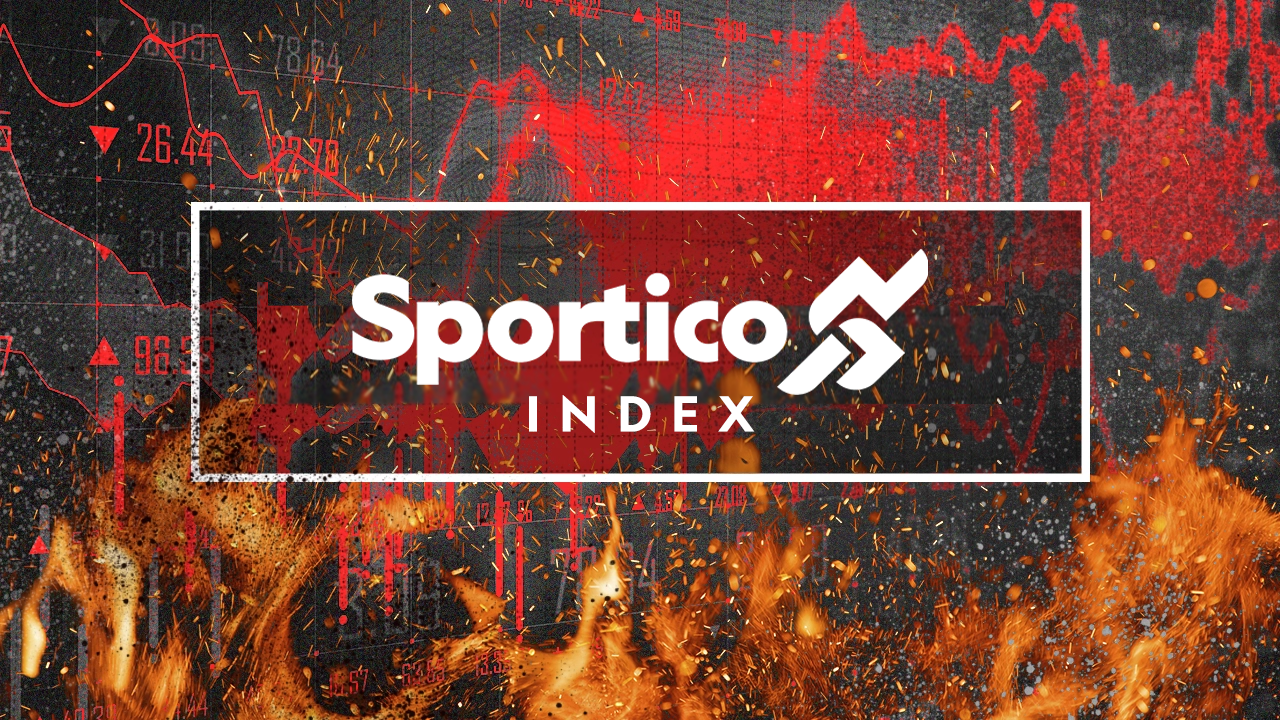
Sports stocks suffered broad declines in March along with the rest of the stock market, as worries over eroding consumer confidence sent stocks to their worst month in two and a half years.
The Sportico Sports Stock Index lost 8%, its worst month since June 2022, closing March at 1,306 having surrendered all the gains the barometer had notched early in 2025. The broader market fared just as badly. The technology-heavy Nasdaq Composite index fell 8% in March, while the S&P 500 index shed 6%, the worst month for both indexes since mid-2022.
The concerns battering both sports stocks and equities at large are fears of stagflation—the combination of weak economic growth coupled with inflation. Stagflation, which bedeviled the U.S. economy in the 1970s and early 1980s, is particularly worrisome for markets because rising unemployment, which is expected to continue due in part to extensive federal government cuts, and inflation, due to the Trump tariffs, can’t really be attacked at the same time through monetary policy. To spur employment growth, interest rates would need to be cut—but to counter inflation, interest rates would need to rise.
“The current market narratives center on this fear of stagflation, which conceptually could be the worst possible combination for stocks,” Talley Léger, chief market strategist at The Wealth Consulting Group, told Reuters Monday. “So in a slowing growth environment, earnings would decelerate, or even collapse in a recession … and on the other side, spiraling inflation would squeeze stocks on the valuation channel.”
The Sports Stock Index saw most of the damage in stocks that rely on consumer discretionary income including ticket brokers, sports betting stocks and sports apparel and equipment makers, though the bearishness was widespread. For the month, 32 of the Sportico index 40 stocks fell, with 18 of those falling more than double digits.
The worst performer was Vivid Seats (SEAT), which reported a good fourth quarter in mid-March but couldn’t deny that the current economic volatility would hurt its business. “We’ve certainly seen the commentary and concerns on consumer outlook. And while we certainly talked about our corner of the world being resilient or resistant, we’ve never said we’re immune,” chief financial officer Lawrence Fey told investors on the March 12 earnings call. In addition to the macroeconomic concerns, Vivid also tempered its 2025 outlook by noting it has seen competition from other ticket brokers intensifying as they appear willing to sacrifice profit margins for market share. Vivid shares closed March at $2.96, down 29% and just 45 cents over its off an all-time low touched mid-month.
The major U.S. sportsbooks all fell more than 20% led by Caesars Entertainment (CZR, down 25%), followed by struggling ESPN Bet parent Penn Entertainment (PENN, down 24%), DraftKings (DKNG, down 22%) and FanDuel parent Flutter Entertainment (FLUT, down 21%). Beyond concerns over consumer discretionary spending, sentiment in betting stocks was further battered by the Georgia legislature failing to advance a sports betting bill for 2025, leaving it possible just one new U.S. market—Missouri—will open up to sports wagering this year.
Not everything was bleak, however. Genius Sports (GENI) led the Sportico Sports Stock Index on the month, rallying 15% on a robust outlook for 2025 issued at the start of March. Genius is seen as more insulated to consumer spending than its sportsbook clients due to contracts it has in place, a growing media tech and advertising tech business, as well as exposure to sports betting outside the U.S.—Europe in particular is seeing strong economic growth, although there are hints its consumer sentiment is starting to falter.
Local television station and Tennis Channel owner Sinclair Inc. also performed well. Sinclair (SBGI), gained 12% in the month on the back of a bullish outlook for 2025 due to good contract renewal rates coupled with expectations that deregulation efforts will allow Sinclair to own more stations in markets where it already has a presence. Electronic Arts (EA), was the third-best performer in the index, advancing 11% on a belief its College Football 2026 game will be a strong performer this autumn as well as war game Battlefield, which follows in early 2026. Some of the uptick also seems to be Wall Street sentiment that weakness in FC 25, the former FIFA-branded soccer game, has been overstated and the franchise will bounce back from disappointing sales.
The Sportico Sports Stock Index is a basket of 40 stocks that rely on sports for a significant portion of their growth. The index includes teams, like Manchester United (MANU, down 10% in March), leagues including UFC, WWE and PBR parent TKO Group (TKO, up 1%) and sporting goods makers, like Topgolf Callaway Brands (MODG, down 1%). The index is equal-weighted, meaning it is rebalanced quarterly with each stock comprising 2.5% of its weight. The Sportico index debuted in August 2020 at 1,000, reaching a peak of 1,763 in October 2021. The index is down 4% for the year to date.

